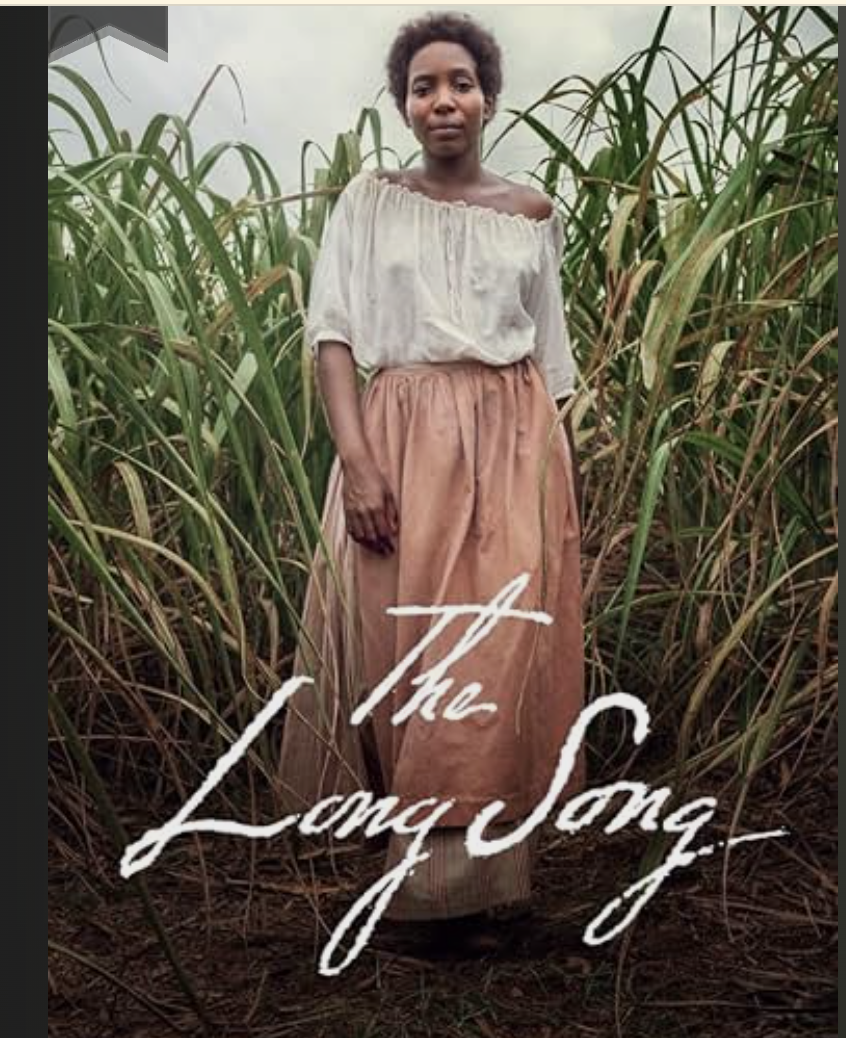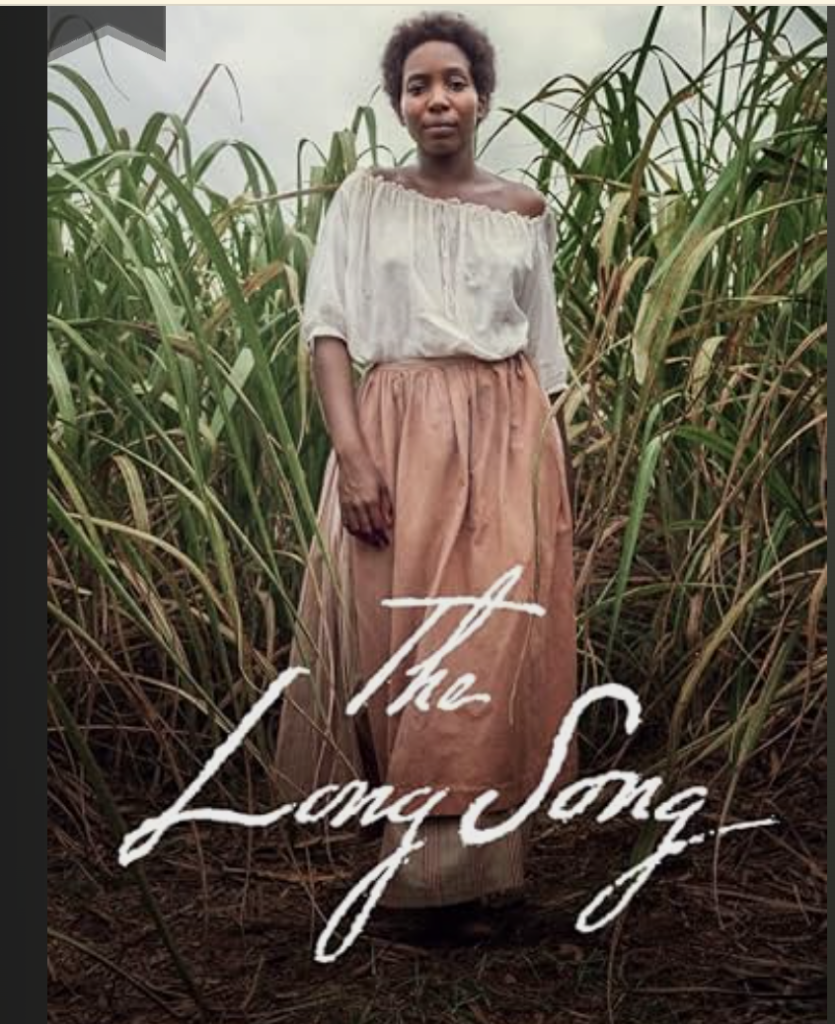
The Long Song–An Aria of Grief and Strength

Based on the largest slave uprising in Jamaican history, leading to the abolition movement in Europe, the three-episode The Long Song is adapted from the late Jamaican-British author Andrea Levy’s acclaimed 2010 historical novel. The author has fictionalized the uprising through the story of a young girl, July.
“The life of a white missus on a Jamaican plantation,” a narrator (Doña Croll) intones in voiceover, “be surely full of tribulation — from the scarcity of beef to the want of a fashionable hat.” Within seconds, the hideous screech of that “white missus” interrupts the narrator. She continues: “If that be the story you want to hear, then be on your way. Be on your way! For the story I have to tell is quite a different one.”
Born into slavery on a sugarcane plantation, July (Tamara Lawrance) is yanked from her mother’s arms as a child to be the housemaid/companion to the owner’s sister–the white missus, Caroline (Hayley Atwell)– who thinks July’s a darling little doll.
July’s kidnapping radically transforms her childhood, destroying her mother (Sharon Duncan-Brewster). The gut-wrenching cruelty and arrogance continues throughout The Long Song, perhaps no more totemic than the initial insistence of Caroline’s renaming the little July “Marguerite” to suit her preferences and to assert her “ownership”. And to break July of any connection to her mother and identity.
Enter the dashing young Englishman, Robert Goodwin (Jack Lowden), who is an adamant abolitionist, following his father’s beliefs that slavery is immoral and constitutes the original sin of racism. Falling in love with July and promising, as overseer of the plantation, to bring fair working conditions to all workers now freed by law, Goodwin infuriates Caroline, who wants to marry him.
The seething resentment of the plantation’s former slaves erupts on Christmas Day, 1831. Although theoretically freed men and women, plantation owners continued to hold them hostage by owning their housing and offering the only employment on the island. Led by a charismatic worker, the strike on the Jamaican sugar plantations could prove to be ruinous for the fortunes of plantation owners. When the strikers’ pay is withheld for past work, the full-on protest by Jamaican fighters for freedom lasts eleven days before the landowners reassert their authority and power. Robert Goodwin must grapple with breaking his own ideals and severing the goodwill he has established with the local community of former slaves.
The acting is superb and both Tamara Lawrance as July and Hayley Atwell as Caroline Mortimer are a commanding, dueling match for each other’s characters, adding wry humor and warmth to what could be stereotyped characters. Lawrence especially portrays both the deeply traumatized but dignified woman warrior in character and strategy. Atwell gives a remarkable performance as the loathsome “white missus” of curdling narcissism and self-congratulatory cruelty.
Availability: PBS [Passport]
Note: Known as the Baptist War or the Christmas Rebellion, the uprising in Jamaica eventually fueled a wellspring of opposition to slavery in Great Britain, resulting in the emancipation across much of the British Empire in the years following the Slavery Abolition Act of 1833.

Helen MacKinlay
Thanks Diana for this recommendation.
We enjoy dramas based on historical fact and this sounds excellent.
Helen and Rod